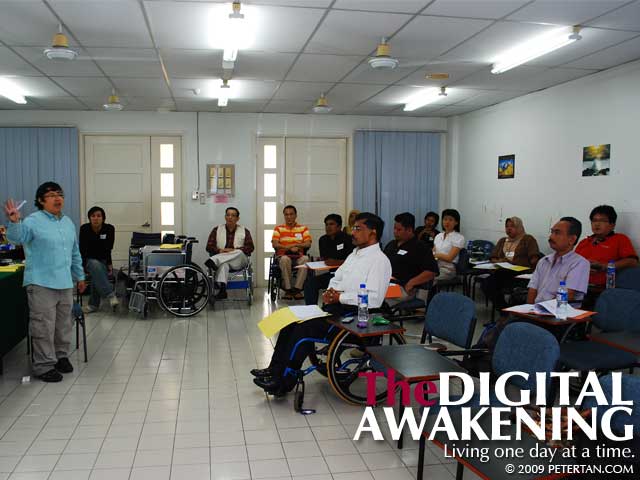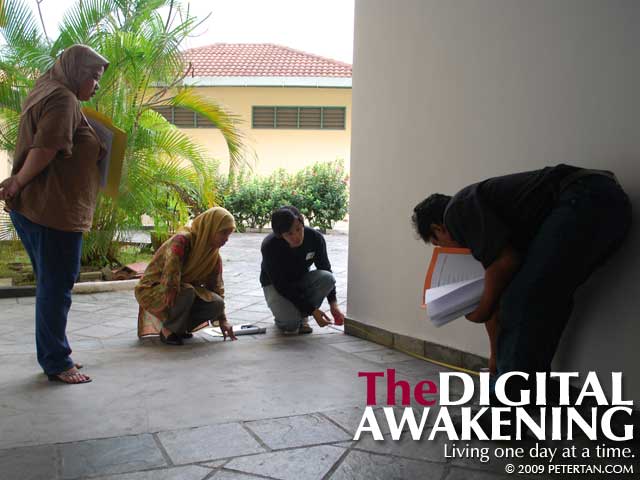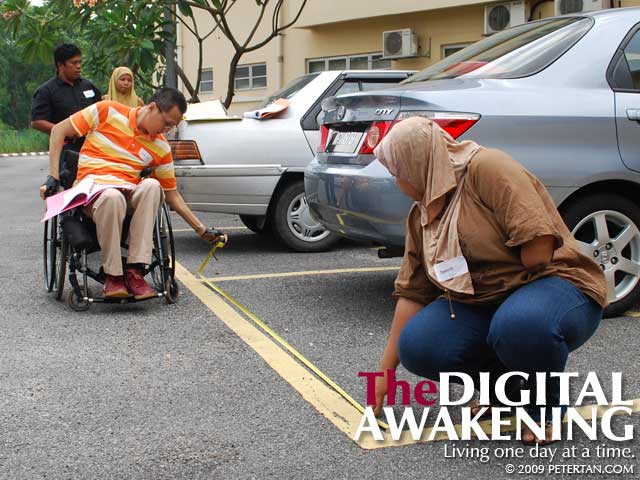
Photo by Wuan.
The Persatuan Orang-Orang Cacat Anggota Malaysia (POCAM) through its Accessibility Committee headed by Elizabeth Ang organised an Access Audit Training for members of the association. The training was conducted by Naziaty Yaacob. She is the senior lecturer at the Department of Architecture, University of Malaya, and is very experienced in accessibility issues in the built environment.
I have been advocating for an accessible built environment and the Malaysian Standard MS 1184 in this blog for a while now but have never really gone into the details that go into making the infrastructure fully accessible. After the training, I realised that there were many issues that I have overlooked, especially the intrinsic details that makes a difference between endangering the lives and making public facilities safe.

Photo by Wuan.
The training was held at the Institut Latihan Majlis Kebajikan dan Pembangunan Masyarakat Kebangsaan Malaysia (MAKPEM) in Sentul. I have stayed there a once and had thought that the building was a good accessible model to duplicate as trainings for disabled people were often conducted there. It was only after the access audit exercise that we discovered a number of the facilities do not conform to the Malaysian Standard MS 1183 and MS 1184.
Accessibility is not only about ramps and toilets for wheelchair users. It is also not exclusively for disabled people. Society in general benefits from such facilities as they are safe and convenient to use. Take for example the staircase. Nosing with contrasting colour is important for indicating the edge of the steps. Wuan and I personally witnessed an elderly man falling down outside Metrojaya Bukit Bintang. He lost his footing walking unaware down an unmarked step. Fortunately he did not suffer any injury.

Photo by Wuan.
Access auditing is important in identifying barriers in the infrastructure that needs to be rectified. This will ensure that everyone has equitable use of public facilities. Malaysia still has a long way to go in this aspect. Most public buildings do not fulfil the requirements of the code of practice. This includes essential government facilities. Accessibility in the built environment is one of the two core issues affecting disabled people that has not been given due attention. The other is public transport.
The local authorities are the biggest culprit in this deplorable state of affairs as they have never seriously enforced By-Law 34A of the Uniform Building By-Law (UBBL 34A) requiring that buildings provide access for disabled people. The UBBL 34A has been in force since the 1990s. Fifteen years on, many new buildings still do not conform to MS 1184. As long as the various levels of government is not serious in resolving accessibility issues, disabled people in Malaysia will continue to be marginalized.
